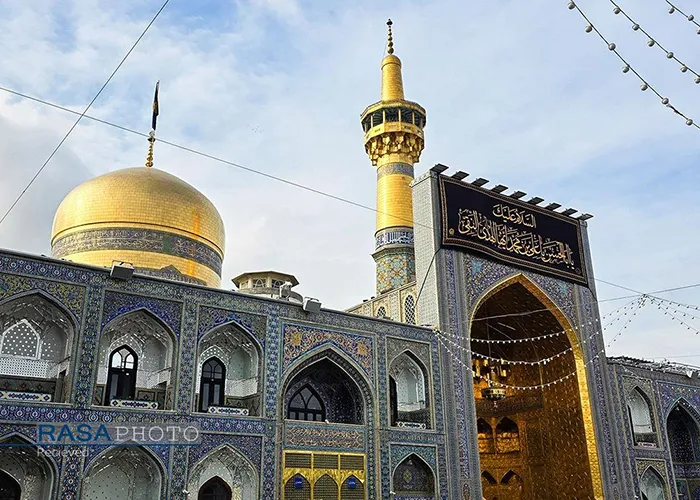Editorial – volume01 Issue24
Reflections on Timely Lessons: Faith, Virtue, and Responsibility
Introduction
In this issue of the Friday Bulletin, we reflect on significant dates and their deep resonance with Islamic values. From the noble sacrifice of Lady Fatemeh Zahra (peace be upon her) to international observances like Volunteer Day, Anti-Corruption Day, and Human Rights Day, each occasion offers a profound opportunity to delve into the spiritual and moral principles of Islam. Additionally, we commemorate the martyrdom of Ayatollah Dastghaib, a stalwart of faith and truth, whose life serves as an enduring beacon. This week’s continuation of The Approach of Islamic Values in Strengthening Family Foundations (Part three) aptly ties these reflections together, underscoring Lady Fatemeh Zahra’s exemplary role in strengthening the moral foundation of society.
The Martyrdom of Lady Fatemeh Zahra (peace be upon her): A Role Model of Devotion and Justice
Lady Fatemeh Zahra (peace be upon her) embodies the highest ideals of faith, resilience, and selfless service. Her martyrdom on the 3rd of Jumada al-Thani is a somber reminder of the sacrifices made for truth and justice. As the daughter of the Prophet Muhammad (peace be upon him), her life was a testament to the profound principles of Islam. Her humility and charity, such as feeding the needy despite her own hardships, echo the Quranic verse:
“وَيُطْعِمُونَ الطَّعَامَ عَلَىٰ حُبِّهِ مِسْكِينًا وَيَتِيمًا وَأَسِيرًا“
“And they give food in spite of love for it to the needy, the orphan, and the captive.” (Surah Al-Insan: 8)
Lady Fatemeh Zahra (peace be upon her), as reflected in the verse epitomised the pinnacle of selflessness, compassion, and devotion to Allah SWT. This verse captures an instance where Lady Fatemeh and her family, despite their own hunger, gave their meagre sustenance to those in need, demonstrating her profound empathy and unwavering commitment to social justice. Her act of prioritising others over herself highlights her role as a paragon of generosity and self-sacrifice, embodying the Quranic principle of loving for others what one loves for oneself. This generosity was not confined to material acts but extended to her spiritual and moral guidance, shaping her as an eternal model for humanity. Her life exemplifies the essence of true faith—living for the sake of Allah SWT and serving His creation with grace and humility.
5th December: International Volunteer Day – The Islamic Perspective on Service
Volunteering is an act deeply rooted in Islamic teachings, exemplifying selflessness and the pursuit of Allah’s pleasure. Islam encourages believers to contribute their time and resources to benefit others, as encapsulated in the hadith:
“خَيْرُ النَّاسِ أَنْفَعُهُمْ لِلنَّاسِ“ (المعجم الأوسط ، ج 6 ، ص 58)
“The best of people are those who are most beneficial to people.”
On International Volunteer Day, we are reminded that voluntary acts of kindness not only alleviate economic and social hardships but also foster unity and strengthen communities. Such efforts align with the prophetic tradition of upholding communal responsibility.
9th December: International Anti-Corruption Day – Combating Injustice in Light of Islam
Islam’s emphasis on combating corruption is deeply rooted in its ethical framework, as demonstrated by the verse:
“وَلَا تَبْغِ الْفَسَادَ فِي الْأَرْضِ ۖ إِنَّ اللَّهَ لَا يُحِبُّ الْمُفْسِدِينَ“
“And do not desire corruption in the land. Indeed, Allah does not like corrupters.” (Surah Al-Qasas: 77)
Corruption, in all its forms—whether economic, political, or social—undermines justice, erodes trust, and destabilises societies. Islam categorically condemns acts that lead to exploitation, dishonesty, and oppression, urging believers to uphold fairness and moral responsibility in their personal and communal affairs. The Quran repeatedly calls on individuals to be stewards of justice, ensuring their actions align with principles of integrity and equity. This obligation extends to resisting systemic corruption by promoting transparency and accountability in governance, trade, and societal interactions.
The observance of International Anti-Corruption Day reminds us of the Quranic command to actively oppose wrongdoing through the principle of amr bil ma’ruf wa nahi anil munkar (enjoining good and forbidding evil). Muslims are tasked with fostering a culture of ethical behaviour, where public resources are used for the collective good and private dealings reflect honesty and fairness. Corruption is antithetical to the Islamic ideal of societal harmony, which thrives on mutual trust and the equitable distribution of wealth and opportunities. By embodying these values, individuals and institutions can work to eradicate corruption and establish a society that reflects the divine directive for justice and righteousness. This call is not merely a social or legal responsibility but an act of faith, drawing believers closer to Allah through their commitment to ethical living.
10th December: Human Rights Day – Upholding the Dignity of Every Individual
Islam established a robust framework for human rights over 1400 years ago, rooted in the sanctity of life, property, and human dignity. This foundation was laid out explicitly in the Farewell Sermon of the Prophet Muhammad (peace be upon him), where he declared:
“ إِنَّ اَللَّهَ حَرَّمَ عَلَيْكُمْ دِمَاءَكُمْ وَ أَمْوَالَكُمْ وَ أَعْرَاضَكُمْ “
“Indeed, your blood, your wealth, and your honour are sacred to one another.” (Mustadrak al-Wasa’il wa Mustanbat al-Masa’il, Volume 18, Page 208)
This powerful statement underscores the inviolable nature of fundamental human rights, emphasizing mutual respect and protection among individuals, irrespective of their social or economic status. Such teachings predate modern human rights charters and reflect a universal vision of justice and equality, where every individual is entitled to safety, property, and respect for their personal honour.
On Human Rights Day, the global community is reminded of the need to uphold these principles to ensure freedom, dignity, and equality for all. From an Islamic perspective, these rights are divinely ordained and go beyond legal frameworks, serving as a moral duty for every believer. Islam’s comprehensive view of human rights encompasses not only the prohibition of harm but also the proactive promotion of welfare and support for the oppressed. This is evident in Quranic injunctions such as:
وَلَقَدْ كَرَّمْنَا بَنِي آدَمَ
“And We have certainly honoured the children of Adam.” – Surah Al-Isra, 17:70
which affirm the inherent dignity bestowed upon all humans. By embodying these values, Muslims are called to be active advocates for justice, protecting the vulnerable and ensuring that the sanctity of life, wealth, and honour is upheld universally. The timeless principles articulated in the Farewell Sermon remain a guiding light in addressing contemporary challenges to human rights and justice.
The Role of Lady Fatemeh Zahra in Strengthening Families
This issue’s continuation of The Islamic Approach to Preserving the Family aptly coincides with the commemoration of Lady Fatemeh Zahra (peace be upon her). Her life exemplifies the profound impact of a devout and principled woman on the spiritual and moral foundation of the family. By understanding and emulating her virtues, Muslim families can nurture love, faith, and resilience, combating the modern challenges of disintegration and moral decay.
Final Word
As we observe these significant occasions, let us reflect on the teachings of Islam that guide us towards a more just, compassionate, and resilient society. The lives of figures like Lady Fatemeh Zahra (peace be upon her) and Ayatollah Dastghaib serve as timeless examples of how faith and action can transform individuals and communities. May we strive to embody these principles in our daily lives and continue to draw inspiration from the divine wisdom of the Quran and the noble traditions of our Prophet and his household.
editor's pick
news via inbox
Subscribe to the newsletter.




